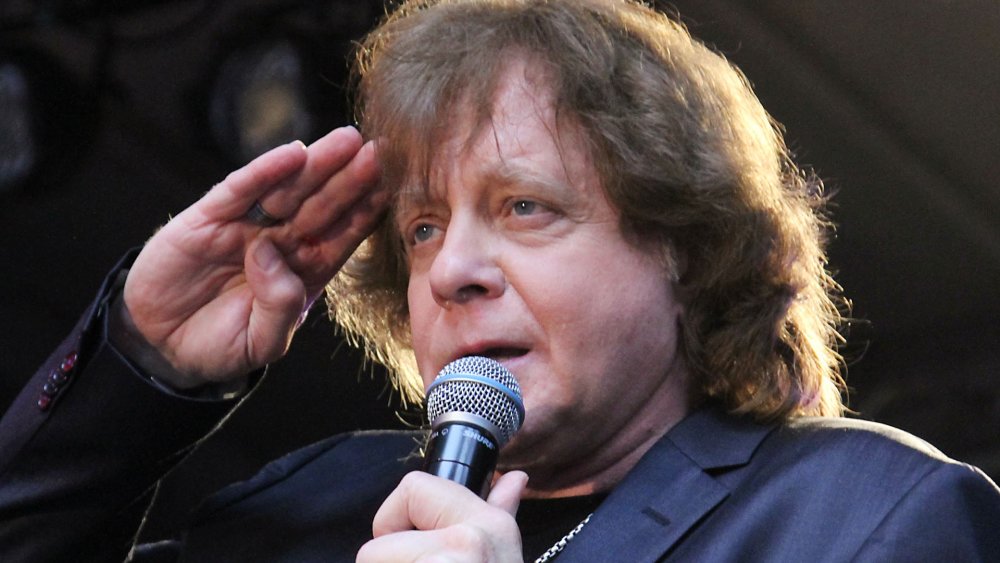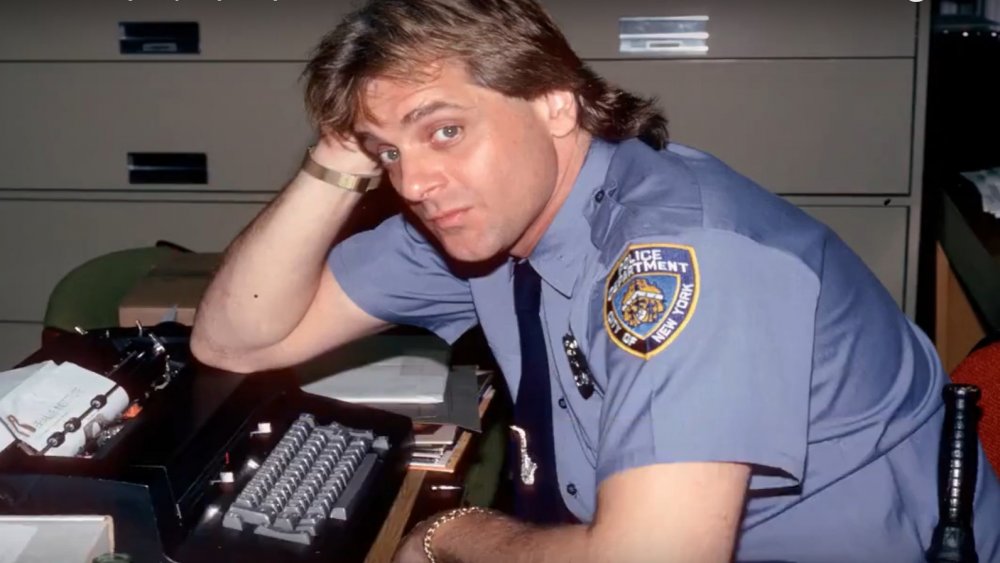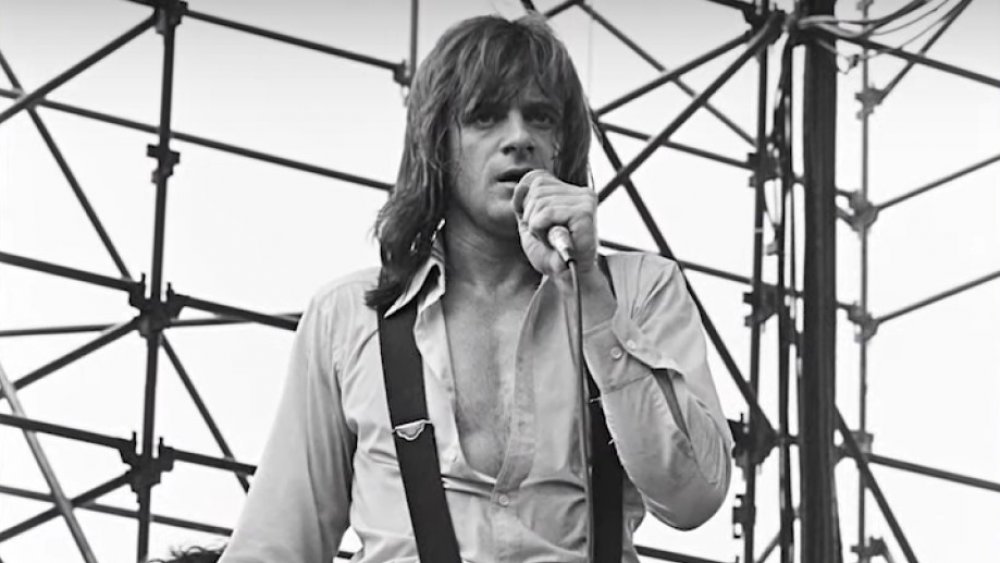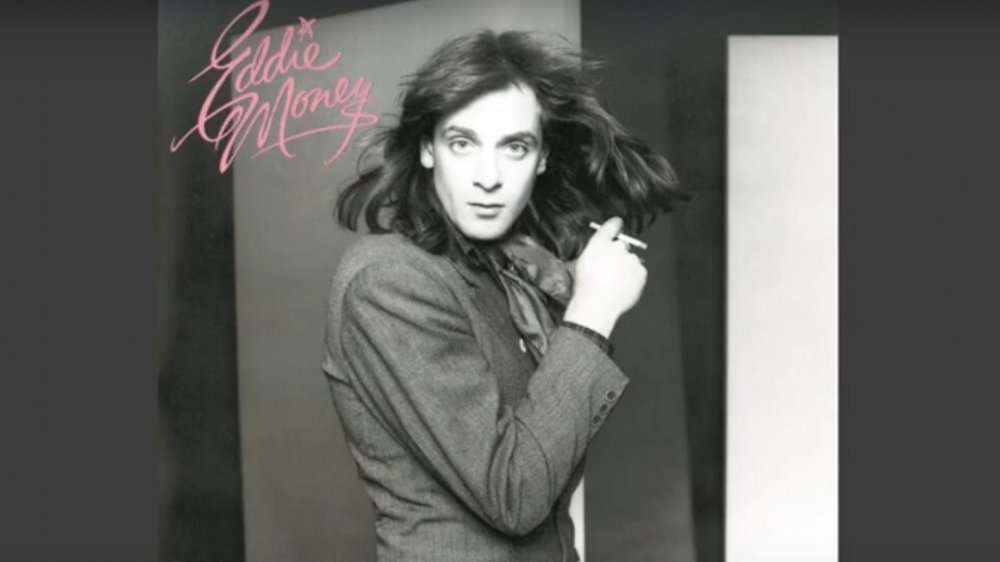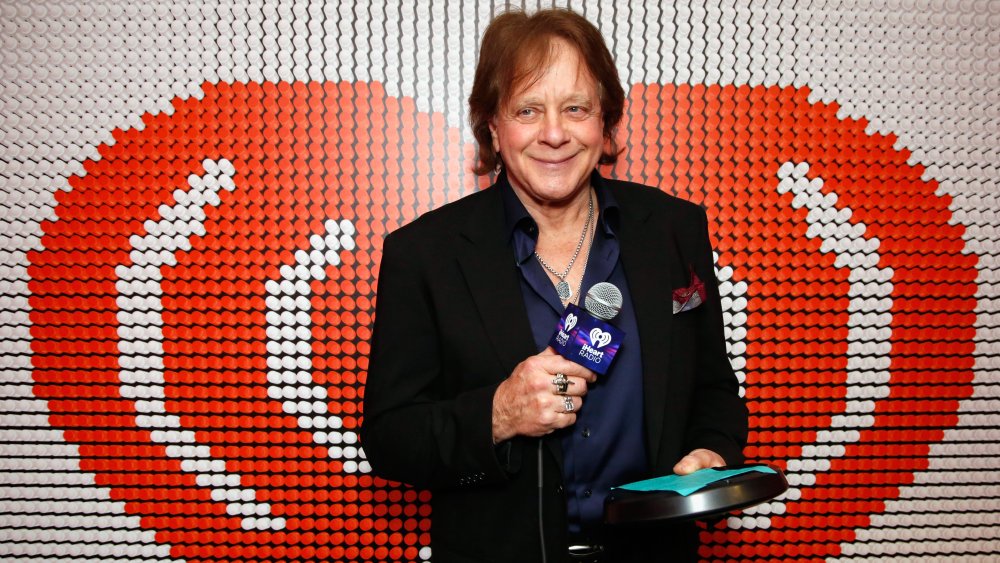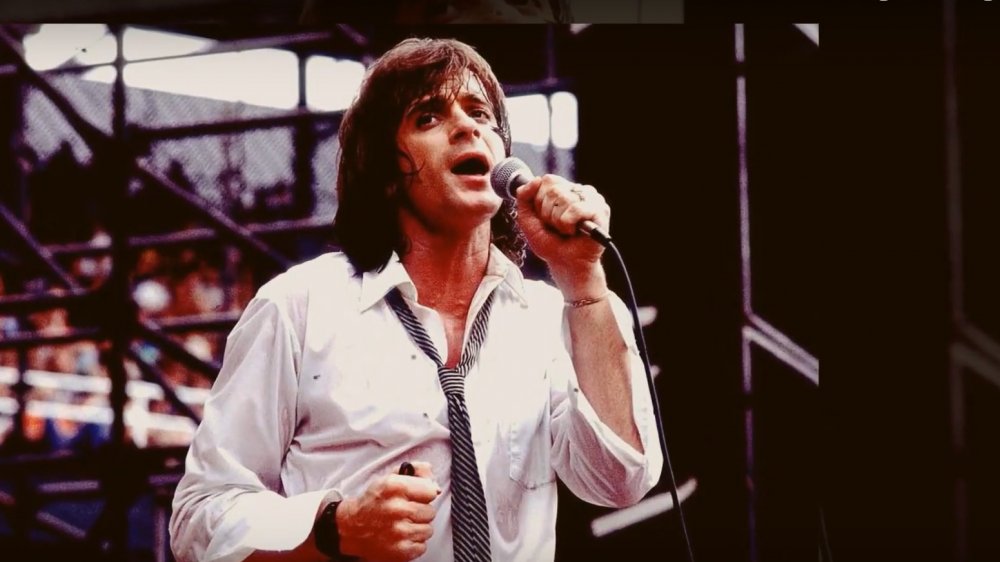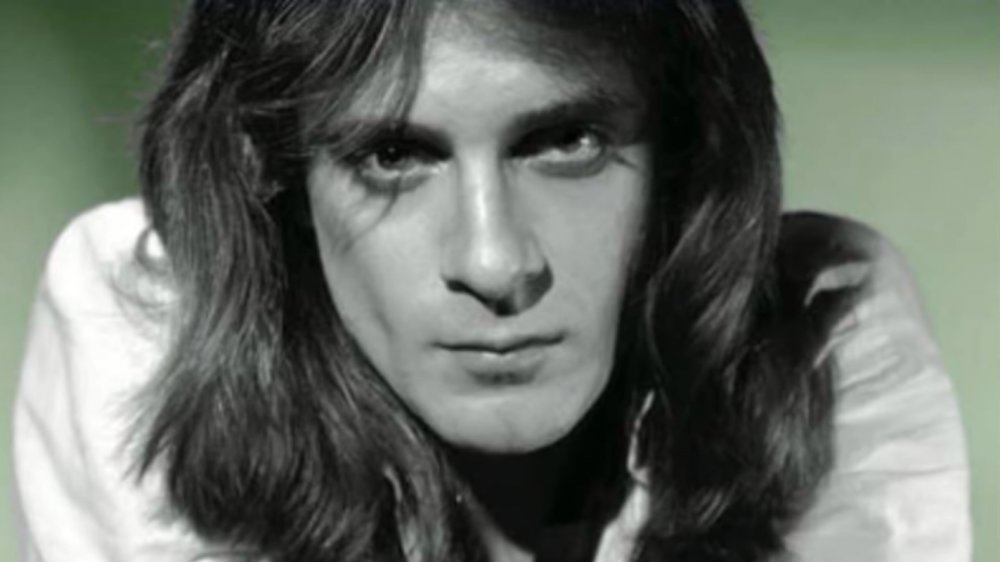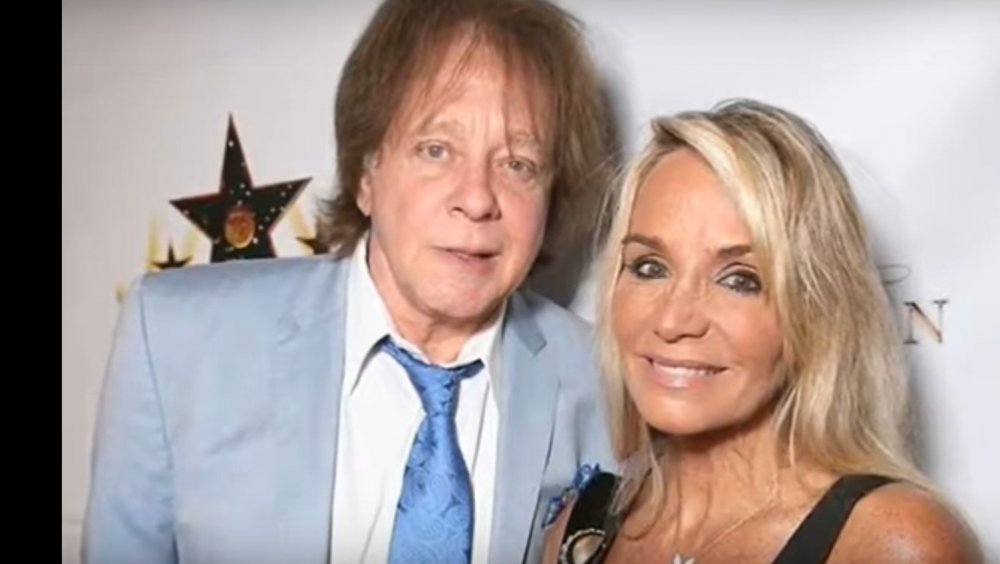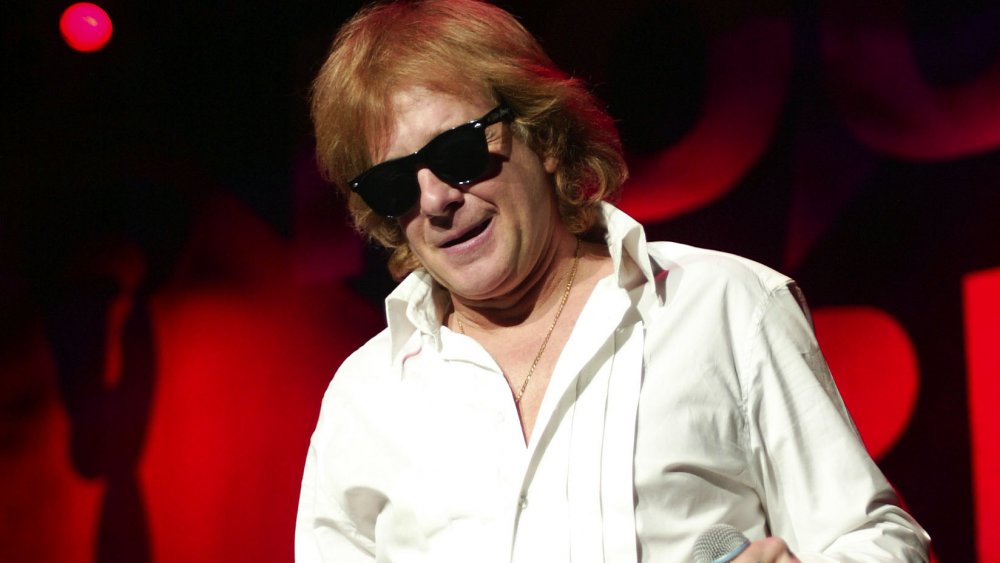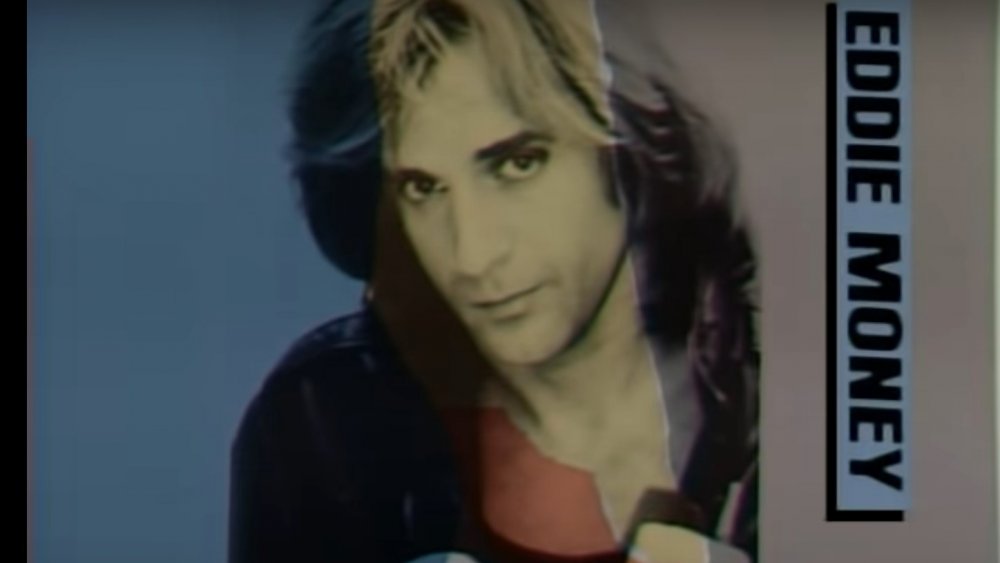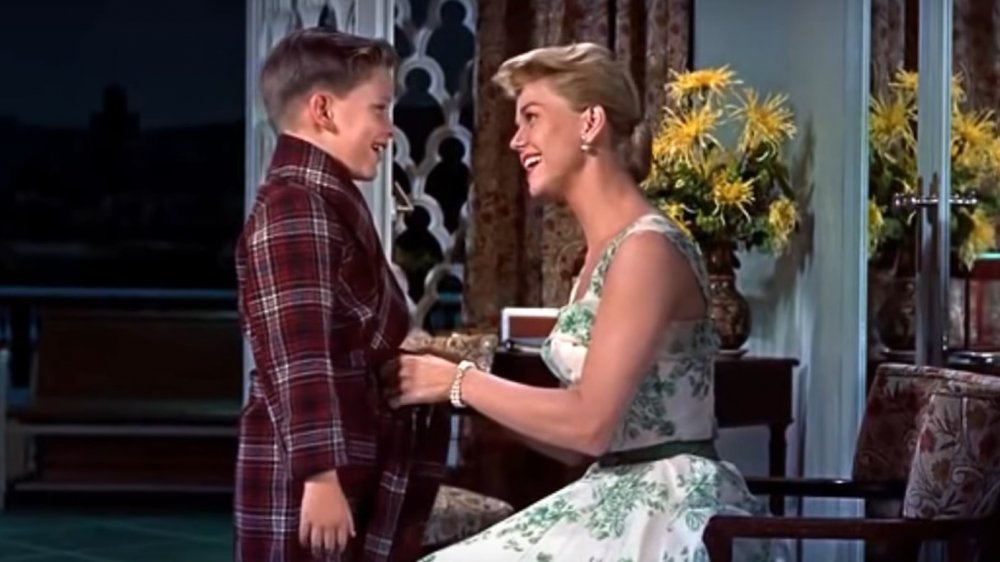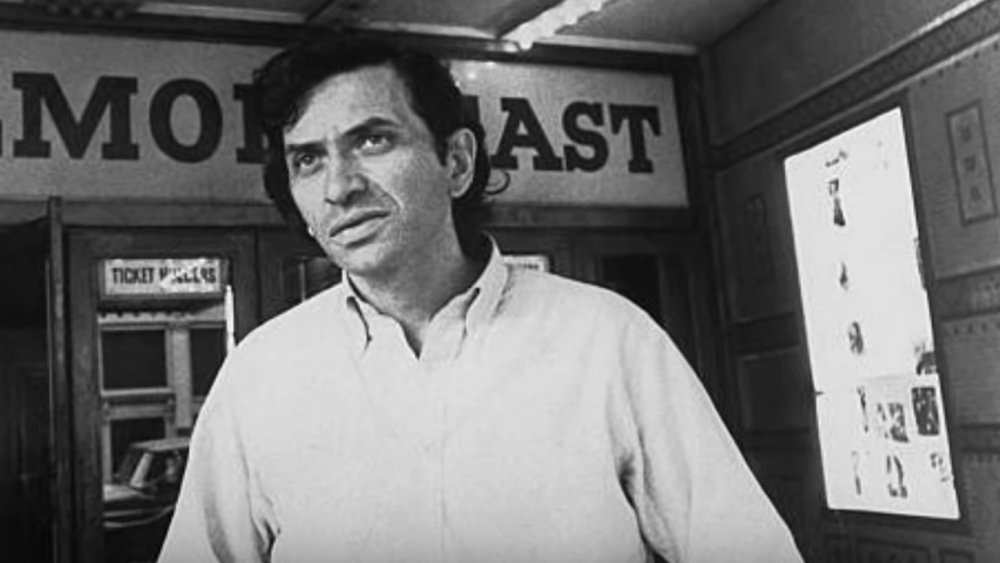The Untold Truth Of Eddie Money
Regardless of when or where you were born, chances are very good you've heard at least one Eddie Money song and found yourself humming it later while you drove or did laundry or performed some other mundane task, and Eddie Money, blue collar rocker, saxophonist, and champion of the everyman, wouldn't want it any other way.
Prior to his death of esophageal cancer and complications from a heart valve procedure at age 70, Money managed to rack up 11 Top 40 hits, including "Two Tickets to Paradise," "Shakin'," "Walk on Water," "Take Me Home Tonight," and "I Wanna Go Back." He also garnered a loyal legion of fans who adored him not only for his talent for penning catchy tunes but his steadfast refusal to be anyone but who he was — an Irish Catholic boy from Brooklyn with humble roots and an accent you could cut with a knife.
And he kept his sense of humor to the last. The father of five was famous in his family for being the king of groan-producing puns and howlers. As he told a reporter with Rolling Stone, on the day the producers of his reality show, "Real Money," arranged a horseback ride for him and his kids, he couldn't resist cracking a classic dad joke: "I'm looking at the horses and going, 'You look really depressed. Why the long face?'" Read on for more about this working-class hero.
Eddie Money and the long arm of the law
Eddie Money was born Edward Joseph Mahoney in 1949 to a large family with law enforcement in its blood. Both Money's father and grandfather were New York City cops, and his brother joined the force as well. Money planned to follow in their footsteps, but he never graduated to full officer. He was on the waiting list for the police academy at the time and had spent two years as a trainee, typing up roll calls. The stumbling block to his completing his training, he told the Tolucan Times, was his hair. He wanted to grow his hair long; the powers that were wanted him to cut it. He decided to give up on his NYC cop dreams and move to California to be a singer. No one, he supposed, would insist he cut his hair there.
According to an interview he did with the Broward Palm Beach Times, Money's father was deeply disappointed in his decision to leave the force and become a singer. "I played Madison Square Garden with Santana and Cyndi Lauper and my father comes to the show and was still pissed off I quit the police," Money said. "Can you believe that [expletive]? He thought rock-n-roll was a fly-by-night job."
Eddie Money moonlighted as a bell bottoms salesman
Edward John Mahoney moved to the Bay Area in 1968 to pursue a career as a singer, and, as often happens to east coast California transplants with stars in their eyes, he struggled to find his footing. One of the first things he did was change his name to Eddie Money. Then, as he told BAM magazine in a 1999 interview, he took a job selling bell bottoms on Berkeley's Telegraph Avenue to make ends meet.
The ends did not often meet. According to this piece in Rolling Stone, a few of his nicknames from the time included "Freddie Foodstamps" and "Eddie No Money." And, as he often admitted to reporters, he was doing a lot of marijuana in the early days. He even spent the night in jail with his roommate because said roommate was selling pot on the side and the landlord busted them.
In between the bell bottoms gig and stints in jail, he played the Bay Area clubs, eventually getting the attention of legendary manager and promoter Bill Graham, who signed him to his own label under the Columbia Records label. To paraphrase Mr. Money, life was finally his for the taking.
Eddie Money has a dubious honor
Money was never shy about his vodka and pot habit, and he admitted to doing quite a lot of coke in his lifetime, too. He was a rising star in the late seventies and early eighties — whaddya gonna do?
Money's mindset seemed to be that he was going to pack as much fun as he could into his rock star days and nights. He smoked, he drank, he did drugs. Women threw themselves at him. It was all very rock-n-roll, baby. In 1981, all the partying caught up with him when he unwittingly overdosed on doctored barbiturates and ended up in the hospital. According to the San Francisco Chronicle, he'd been passed out for 14 hours, lying on his side, before he received medical attention. Later, it was discovered that the drugs he'd taken were laced with fentanyl. The experience did permanent damage to his sciatic nerve and he was unable to walk for a year.
As this Rolling Stone profile points out, that long-ago nightmare actually gave Money a place in history: he became the first celebrity in America to overdose on fentanyl. Not exactly the feather he might have wanted in his cap, but five years later he was nominated for a Grammy for Best Male Rock Vocal performance for his song, "Take Me Home Tonight," so comebacks are a thing and dreams really do come true.
Eddie Money had a mouth on him
Money was known to many for his off-color comedy and his potty mouth. He lived as if he'd never heard the phrase "politically correct." Or maybe, after all he'd seen and done, he just didn't care to censor himself or sugarcoat anything. Regardless, he always spoke and laughed freely, and occasionally, his willingness to push the boundaries of good taste got him in trouble. Like the time he joked about being part Jewish at a talk he gave at the Grammy Museum in Los Angeles.
The anecdote, according to Variety, went like this: "My wife always looks like a million bucks and she spends so much money on clothes and I hate it. It's the Jew in me." A few members of the audience took umbrage with the remark, labeling it anti-Semitic, but Money said he would never discriminate against Jews. His mother was, after all, part Jewish. This surprised some fans, who only knew about Money's Irish-Catholic side. Fans weren't shocked, though, by the sub-par quality of the joke.
The one song Eddie Money wished he hadn't written
Money clearly relished any opportunity he had to trot out his greatest hits for his fans, and "Take Me Home Tonight" had a special place in his heart because a) he got a Grammy nom for it and b) it gave him a chance to work with Ronnie Spector of the Ronettes. ("Be My Baby," anyone?) There was one song he hated playing live, though. Sorry, "Walk on Water," fans. This diddy was a painful one for Money.
In an interview with Popculture.com, he explained why. It came down to those pesky "na nas." "Everybody really likes 'Walk on Water,'" he said, "and I hate singing 'Na na na na na na na na na. I feel really silly singing the song, but you gotta go out there and do the songs that they love. [Sings] Na na na na na na na na na. I mean, come on. You try doing that for 30 years in a row. It's not even a lyric. It was supposed to be a horn part, but the horn player never showed up, so I had to do it with my mouth."
Eddie Money proves cheaters sometimes prosper
Money started singing on the streets of Brooklyn, New York when he was 11-years-old and, according to his Washington Post obituary, he played in rock bands throughout high school in order to get dates with cheerleaders. Eddie Money for the teenage social life win? Check.
When it came to homework and grades, though, his history is a little more complicated. According to this LA Times tribute, he was kicked out of one high school for forging a report card. Eddie Money for the bad ass/class clown frontman award? Yeah, check that box, too.
Money's trouble-making ways didn't really hold him back in any substantial way. In 1967, he finally did graduate from high school — from Levittown, New York's Island Trees High School — and shortly thereafter moved to California where he must have sensed that someone with a talent for magically turning bad grades into good ones would be welcomed with open arms.
Eddie Money's wife didn't know who he was at first
Eddie Money's personal life is, in many ways, as colorful as his music. On Valentine's Day in 1984, he married then 24-year-old Margo Lee Walker in what was supposed to be a quiet, intimate ceremony. According to this archived wedding announcement from United Press International, a gaggle of screaming teens showed up, dashing the bride's desire for privacy.
Five years later, having divorced Walker, Money married the model Laurie Harris. They met in 1985 and Harris, a blonde beauty bent on motherhood, wasn't immediately impressed. In fact, she told People magazine that, at first, she mistook Money for another blue collar rocker, Hoosier singer-songwriter John "Cougar" Mellencamp. And she worried about his drinking, smoking, and drug habits.
It took Money entering a 12-step program to convince Harris that he was serious about being a loving husband and family man. Money's sobriety didn't stick for long. (He finally got sober in 2001.) The marriage, however, lasted for 30 years, during which they had five children together. Having married in a beach ceremony, they renewed their vows in a Los Angeles church just seven months before Money's death.
We heart Eddie Money
Eddie Money had his fair share of rabid fans, including one mentally ill man who was convinced he was his twin brother. According to this interview with Rolling Stone, the man, who grew up on Long Island, went so far as to fly to San Francisco to assassinate Money. As luck would have it, Money was on his way to New York City's Kennedy Airport at the time. Money took the incident in stride, saying, "He could've saved himself a fortune and tried to kill me at Kennedy instead." After the man was institutionalized, Money even visited him in the hospital and taught him to play dominoes. The man, Money claimed, went on to become a champion domino player.
Another fascinating subset of Money fans included exotic dancers who've made some serious cash at the pole thanks to his hits, "Shakin'" and "Take Me Home Tonight." This piece in Ultimate Classic Rock reports that Money got so many personal Twitter messages from his stripper fans, his wife, Laurie, eventually had to tell them to cease and desist.
And while this doesn't really count as crazed, one DJ saved a joint that Money accidentally left behind at a New York radio station in 2015. The DJ kept the joint in a jar for four years and posted a picture of it after he heard of Money's passing. A perfect relic for a partying man.
Two tickets to ... well ... nowhere
One of Money's most beloved hits, "Two Tickets to Paradise," is not what it seems on first listen. The song, with its hopeful lyrics about a couple who's waited so long for their perfect trip — "Won't you pack your bags? We'll leave tonight" — actually has a rather melancholy story behind it. Money wrote it for a girl he met in college in Berkeley, California in the seventies. He hoped to take the girl on a tropical vacation. He couldn't afford air fare, though, so the paradise he's referring to in the song are the Northern California Redwoods, which he hoped to get to via Greyhound bus. Then the girl, whose mother was always setting her up with the sons of senators and congressmen, dumped him.
Money found comfort in some good, old-fashioned parental wisdom that came courtesy of his mother. He told the Philly Voice that her words gave heartbroken him the perspective he needed: "My mother used to say, 'It's not the state, Eddie, it's your state of mind.'" So true, especially when you've finally made it so big you can afford to fly to paradise a thousand times over.
Eddie Money was the star of the show
Money and his second wife, Laurie, had five children together, and their family was the heart of the reality show, "Real Money," which continued to air on AXS TV after his death on September 13, 2019 of esophageal cancer. The inspiration of the show was, oddly enough, Oprah, who had Money on her network as part of her "Where are they now?" series.
In the show, Money was often either cracking jokes or the butt of them. As Laurie said in one episode, being married to him was like being married to a large child. He was that fun-loving and exasperating. Eddie put it a little differently: "We're kind of like the Partridge family, only really dysfunctional." Regular viewers got a glimpse at the intimate, day-to-day life of a hard-partying rock star-turned suburban LA patriarch and his children, most of whom have pursued careers in the music industry. His daughter, Jesse, is a singer. His son, Desmond, is a guitarist. Another son, Julian, is a drummer. They all credit their father with inspiring them to follow their dreams.
Ever the funny man, Money quipped in Forbes that he wished producers would have approached him when he was a little younger: "The kids are great and it's just been a lot of fun ... You know, I'm just the typical American dad, I want to do everything I can for the kids ... I just wish we would have shot it ten years ago and ten pounds ago."
Cooking with Dinah Shore and Getting Sued by Doris Day
Eddie Money lived an undeniably full life packed with weird and wild experiences. One of those experiences, according to the Hype Magazine, included cooking a leg of lamb with Dinah Shore. This was on Shore's television variety show in July 1979. After that odd culinary feat, he became a household name, probably because he also performed a couple songs — "Can't Keep a Good Man Down" and "Baby Hold Onto Me."
Speaking of "Baby Hold Onto Me," he told an reporter with The Vinyl District that that hit landed him in hot water with none other than America's sixties sweetheart, Doris Day. He'd written the song as a loving send-up to "Que Sera, Sera" from the Doris Day/Jimmy Stewart film, "The Man Who Knew Too Much." One morning, Day came to Money's apartment. He was in no shape to meet the movie star. He hadn't showered or combed his hair in three days. He couldn't even remember who she was. He, of course, denied that he'd taken any inspiration from Day's song, but later he admitted that she was absolutely right to want to sue.
Eddie Money was discovered by a legend
When Money moved to the Bay Area in 1968, he did so with no friends and no real connections. He worked his way up, playing clubs in and around Berkeley. In 1976, he was performing a one-man show at a venue called Winterland when he met the established producer and music promoter, Bill Graham.
Graham, who worked with the Grateful Dead, Jefferson Airplane, and the Rolling Stones, among others, loved what he saw in Money. He even signed Money to his own label, Wolfgang Records. The two had a father/son-like bond, according to this video from Rockhistorymusic.com, in which Money chronicles their relationship. Some of Money's admiration for Graham came from the fact that Graham, a native of Germany and a Jew, actually walked all the way from Berlin to Paris in 1939 to escape the Nazis when he was just 14-years-old. After that sort of trauma, working with rock stars must have seemed like a piece of cake.
Graham, loved by all who had the chance to collaborate with him, died in 1991 in a helicopter accident after seeing a Huey Lewis show. Does a death get more rock-n-roll than that?
